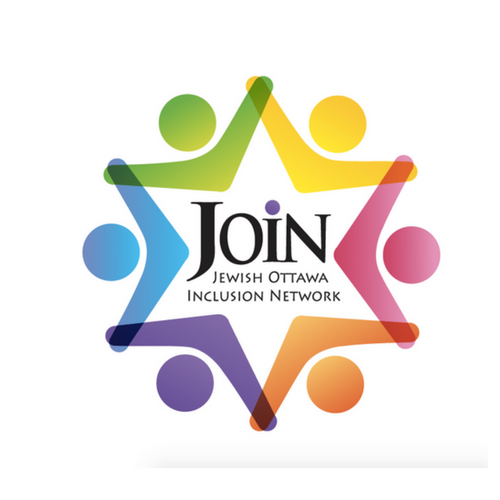
Every February for Jewish Disability Inclusion and Awareness Month (JDAIM), the Jewish Ottawa Inclusion Network (JOIN) invites teens and children to submit entries related to different themes of inclusion. These can be written, artwork, videos, or audio files and all ages and abilities are encouraged to participate. This year, for the fourth annual youth leadership contest, the prompt was, “What do you wish adults in your community better understood about inclusion?” Around 50 students participated from different schools across the city.
The winning entry was a compelling essay by Na’ama about ableism where she outlines what she wishes community leaders better understood about ableism and how ableism affects us all.

What do you wish adults in your community understood better about inclusion?
Has someone ever said something to you, and you knew it was wrong, but didn’t have the courage to correct them? This is the source of lots of ableist comments. Even though I am only in eighth grade, this happens to me quite often. I can imagine that this happens to others too. I am trying to improve every day with this bad habit, as I am aware of its effects. My goal is to make sure that more people are aware of this habit and how it affects society, as I am sure this happens to them too.
Ableism is a very big problem in our society. Ableist comments are not okay, ever. Sometimes people can even say ableist comments with good intention. Just because they are said with good intention, does not make them okay. Correcting someone for making an ableist comment is not rude, it is right. There are zero exceptions to ableist comments.
Ableism includes many factors, and we always have to be mindful about what we say. Some things we say can suggest that certain people don’t matter. For example, talking about someone in past tense if they are sitting right there. That is a common example of ableism. Gossiping about somebody can also be ableism. The list goes on, and what we need to learn is to choose our words carefully. When on the receiving side of ableism, it is very important to correct the person saying the ableist comments. It is much easier to let the comments go without discussion, however the person will not learn. They may think that this is an okay thing to say, and that nobody minds, or they might not even be conscious of their ableist comments. Whichever category they fall into, correcting these phrases and possibly actions is key to a more inclusive community.
Ableist mindsets are also a big part of why society is doing ableist things in the first place. In a video by @ShelleyMoore, she talks about the importance of Presuming Competence. Presuming competence means EVERYONE can and does learn. Her video was about how we have to get over the barrier of mindset, and the first step to doing this is presuming competence. Understanding that everyone learns, communicates and functions differently. She also says that some of the words of INCLUSION LEADERS include ableist phrases like “Yeah, but they can’t.” Everyone can practice presuming competence. Those who are supposed to lead us are even using ableist comments.
This phrase of “Yeah, but they can’t.” is influencing the community, because it is coming straight from those who are influencing us. Saying anything as a leader influences the community. I wish adults in my community understood the effect that they had on people. The ableist phrases that are coming from leaders are instantly used by the community, because they look up to the leader. These phrases are looked at as the proper way of addressing a topic. As a community leader it is important to always address sensitive situations with caution.
The fact that recognizing inclusion can open doors to so many opportunities, means that the future of inclusion starts with you. With you recognizing that you have the power to create change, creates a domino effect from others that have learned from you.
Jewish community leaders have a tremendous effect on their community. They should focus more on self reflection and presuming competence and how they relay that information to others. They have so many opportunities to influence the community, and they should be seizing these opportunities to promote inclusion and presuming competence.
Even though I am just a kid, my words matter. I hope that I can one day inspire people to be more inclusive and bring a positive light onto this world. Kindness is important. No matter where or who you are, your words and actions affect people. Understanding inclusion is very important when aiming to practice it, and ableism is never okay. We should always aim to leave the world better than when we arrived. There is no “I’m done” to inclusion. Keep spreading awareness. We are never going to be finished making this world a better place. There are always more steps to come.
Mazel tov to Na’ama for her submission. Jewish Ottawa is so proud to have such a talented, wise, and brave teen in our community showing so much leadership in regard to inclusion. We hope that our community’s adults will read and learn from her important words.
